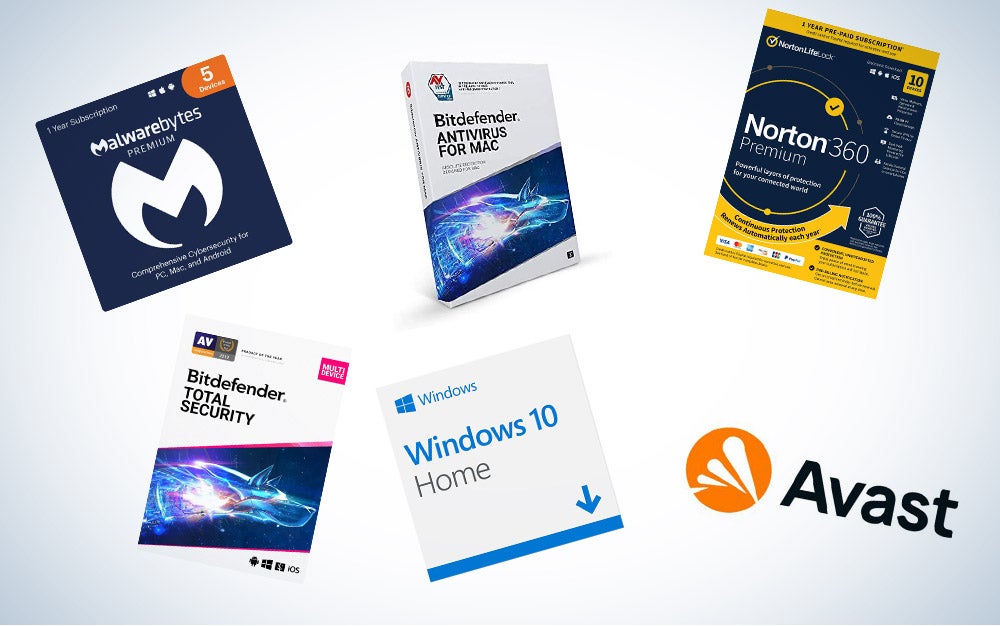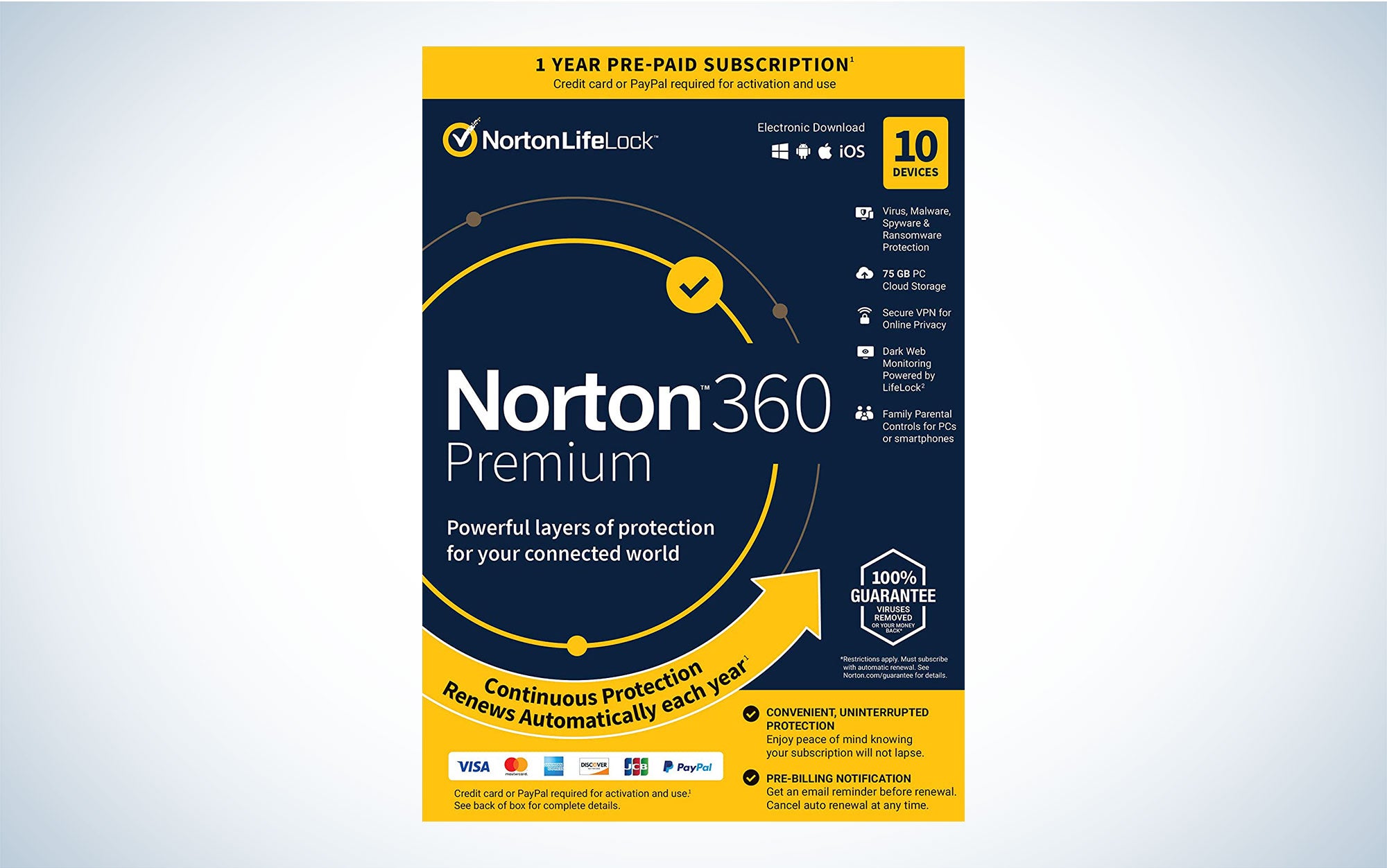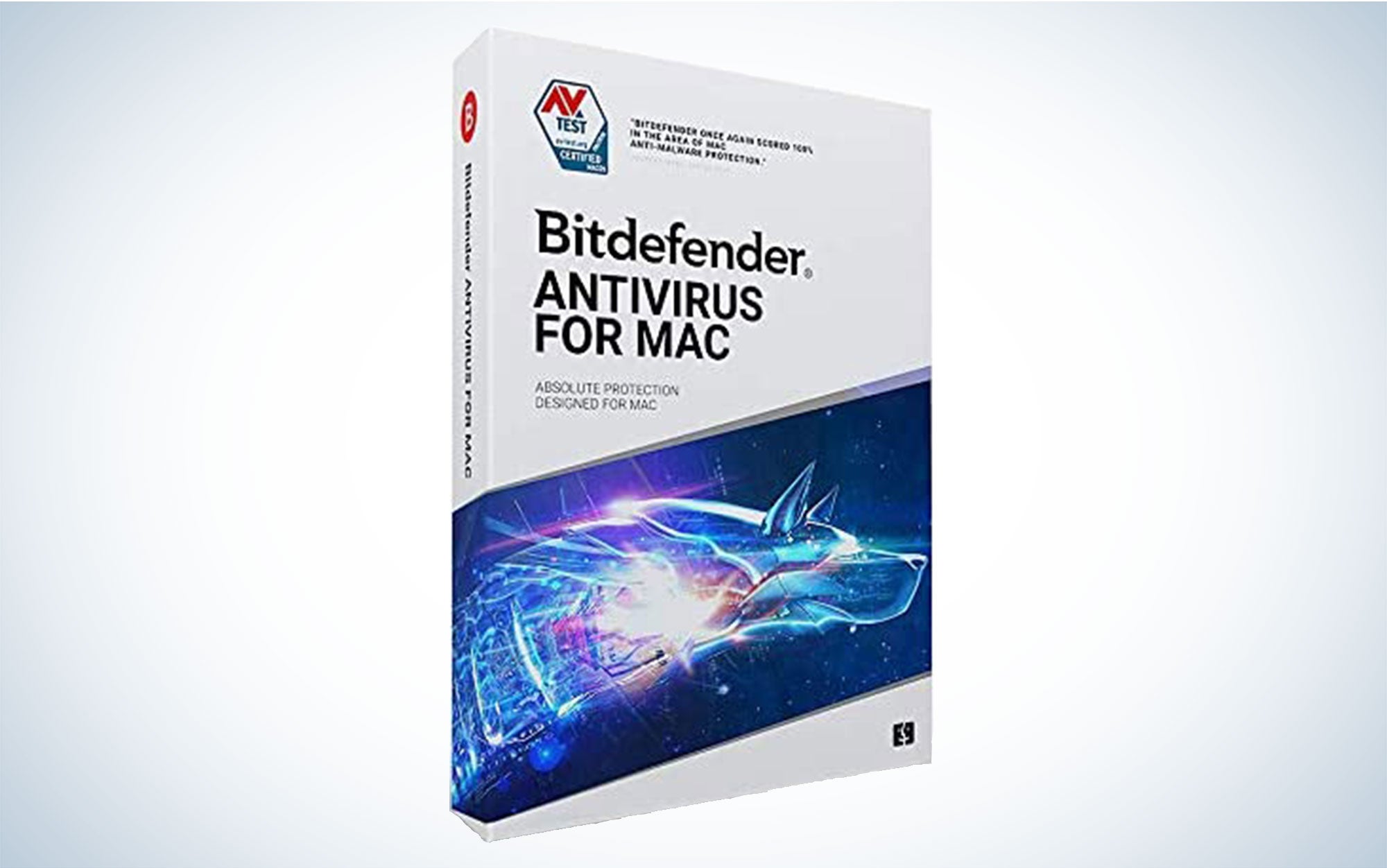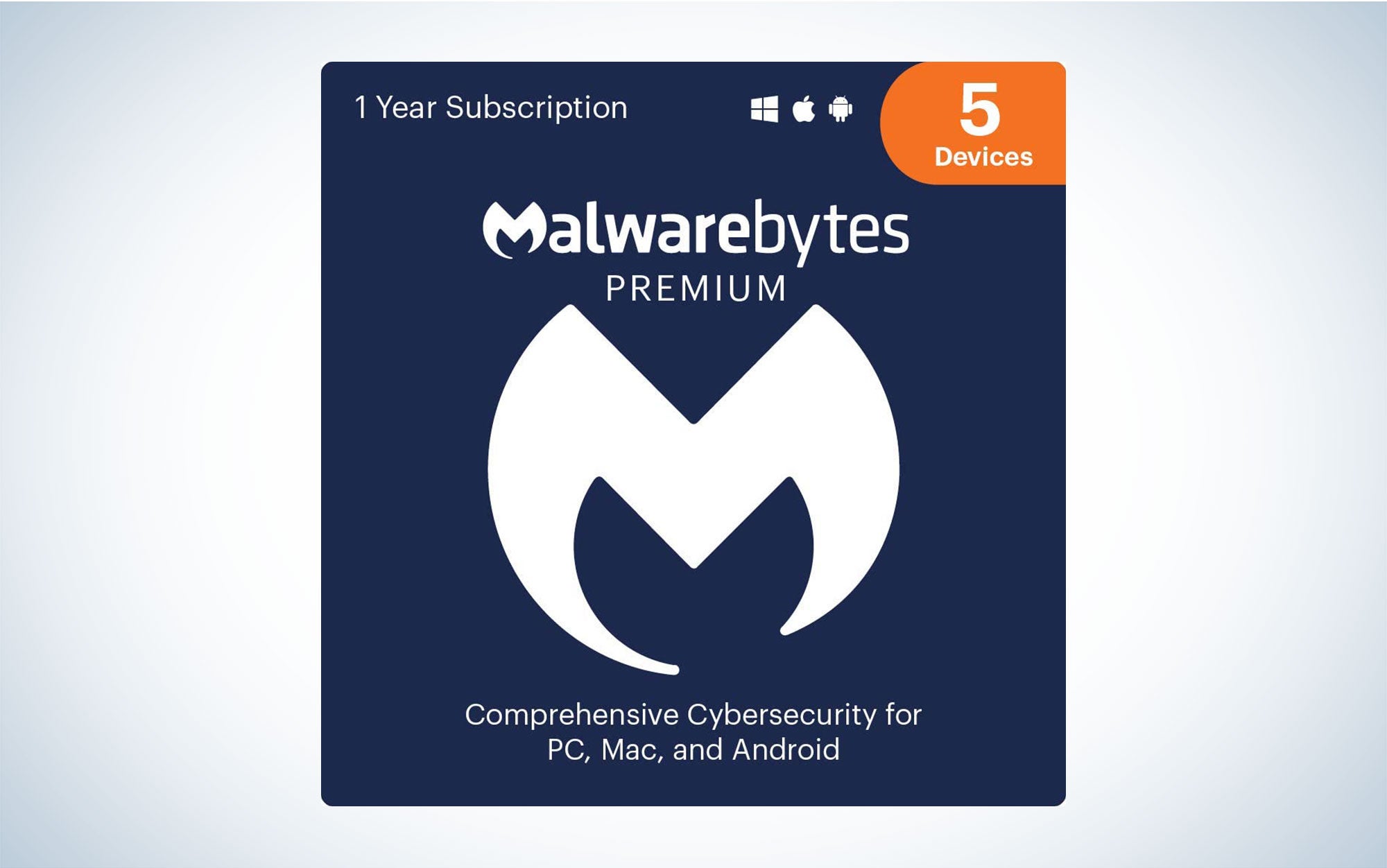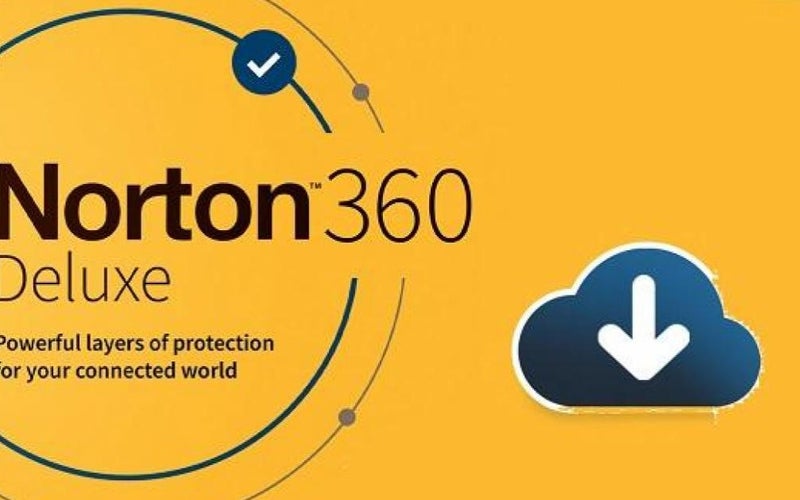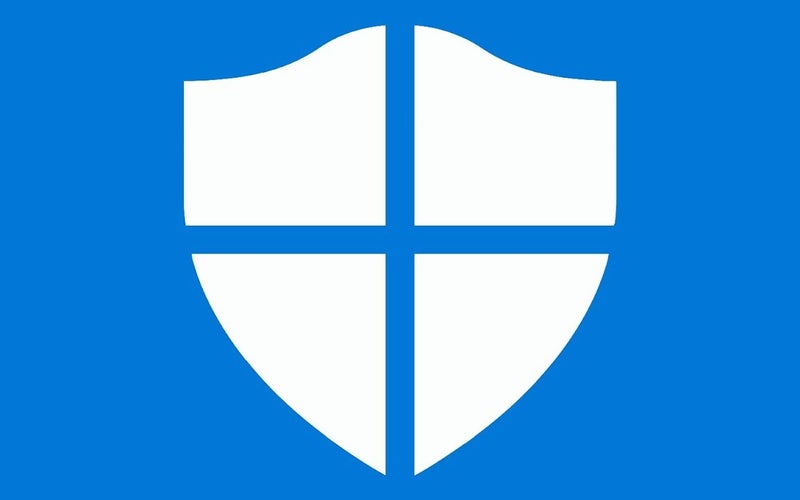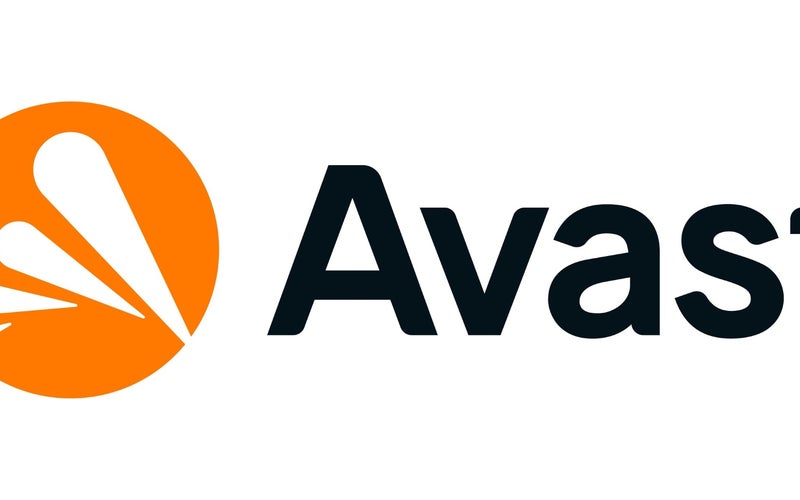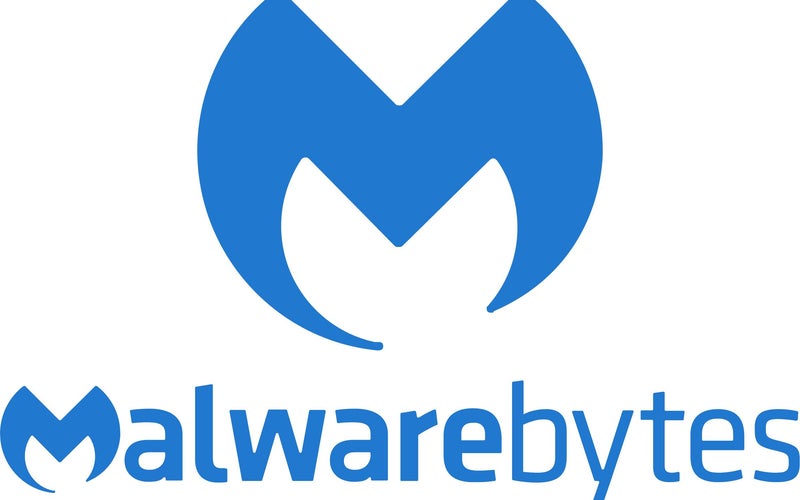We may earn revenue from the products available on this page and participate in affiliate programs. Learn more ›
The internet is packed with ways to have fun, educate yourself, spend money, and do just about anything else you can imagine. But it’s also packed with sites, ads, and scammers looking to load your computer with viruses and malware, and to part you from your money. The internet is barely recognizable compared to what it looked like fifteen years ago, but even now it’s still crucial that you have something guarding you against the less visible, more insidious threats. There’s good antivirus software for every device, both free and paid, which can help ensure that there are no insidious programs running on your devices without your knowledge. No matter what you choose, your computer will be better off with them than without them.
How We Selected the Best Antivirus Software
It’s impossible for even an experienced critic to effectively test antivirus suites as we would other products. Luckily, there are independent firms devoted to providing trustworthy data that we can use to rate security apps. For this rundown, we looked to AV-Test, AV-Comparatives, MRG Effitas, and SE Labs. Like other credentials or certifications for consumer products, some of these services charge security software firms for inclusion in testing. Payment does not, however, guarantee a good rating. These sites all have proven track records of smart software analysis in the antivirus/cybersecurity community. We used the most recent reports from these groups to find the best antivirus software for the devices that need it most.
- Best antivirus for Windows 10: Norton 360 with Lifelock Select
- Best free antivirus software for Windows: Microsoft Defender (Free with Windows 10)
- Best antivirus for Mac: Bitdefender Antivirus for Mac
- Best free antivirus for Mac: Avast One Essential Antivirus
- Best antivirus for Android: BitDefender Mobile Security
- Best malware removal tool: Malwarebytes
What to consider when selecting an Antivirus suite
There are lots of really good antivirus applications out there for every mainstream operating system. The most important thing is that you actually pick one: There are strong free options for both Windows and Mac, so it’s worth taking the time to at least put in the time to install something.
That said, the best antivirus software doesn’t just defend you from threats on the web. The premium versions of these services offer full-featured security suites, often including password managers, a virtual private network (VPN) to protect your identity while using web browsers, online file backup, and more. Since Windows has a free antivirus suite built-in, privacy purveyors are working overtime to make their products more valuable. No matter what you do, you shouldn’t set up a new device without having some protection. If you’re struggling to figure out what you need, start with these basic concerns.
Compatibility
Antivirus software is made specifically for each type of operating system: Windows, MacOS, Android, iOS, etc. It’s important that you buy the right app for the right device. We’ve made our recommendations by operating system, so you can pick the ones you need. If you’re going to continue researching on your own, though, make sure to keep operating systems and compatibility in mind.
Number of Devices on the Plan
Picking an antivirus suite often comes down, in part, to how many devices you need to protect. If you’re paying for a security suite, it could come with anywhere from 1 to 10 licenses. If you’re single, living alone, and do all your work and play from a single computer, that 10-license plan probably isn’t worth your while like it would be if you had a family full of computers and phones to protect.
System Performance Impact
The best way to avoid getting viruses is to just not to put a computer on the internet—but that’s not practical. So instead, you want to find a solution that lets you get online but doesn’t slow your activity down to a halt. Just the same way that putting a door on your house makes getting inside take a few more seconds, a security suite can add a bit of time here and there to things like file transfers and downloads. The best suites are all but unnoticeable, though, and the ones we’ve selected all perform above the industry average.
No Antivirus Suite is Perfect
The extensive testing by various certified authorities will give you a good indicator of whether or not an antivirus suite is safe and strong, but the best an Antivirus suite can do is protect you from all the viruses and malware we already know about. If you’re one of the lucky few to get hit by a brand-new exploit, your AV software may not catch it. It always pays to be smart and cautious when clicking around the internet and your email, but you shouldn’t need to be constantly worrying, either.
Best antivirus software: Here’s what we recommend
We’ve split our recommendations into a few different categories. The free options offer real-time virus protection and little more–you get that basic, crucial protection without having to pay a cent. The paid picks are just as effective at combating viruses, but also offer additional features to create a more complete digital security package.
Best antivirus for Windows 10: Symantec Norton 360 with LifeLock Select
Norton
Why it made the cut: Our pick for the best antivirus software for Windows 10 is Symantec Norton 360. Norton Antivirus provides effective virus protection, along with a slew of other features and a money-back guarantee.
Specs:
- Free version? No
- Paid version? Norton Antivirus Plus Edition: $14.99/year (1 device); Norton 360 Deluxe: $49.99/year (5 devices); Norton 360 with Lifelock Select: $99.99/year (5 devices, plus LifeLock Select)
- VPN: Yes (Deluxe and above)
- Firewall: Yes
- Password Manager: Yes
- Webcam Monitoring: Yes
- Parental Controls: Yes
- Cloud Backup: 2GB (Deluxe: 50GB, 360 with Lifelock: 100GB)
- Safe Banking Features: No
- Device Theft Features: No
| Pros | Cons |
| Lots of security tools | Not as lightweight as Microsoft Defender |
| Multiple subscription tiers | |
| Money-back guarantee |
PC fans of a certain age will remember a time when Norton Antivirus was looked down upon for providing questionable protection and taxing your system’s performance. But, just like people, antivirus applications can change with time and effort. These days, Symantec’s virus protection options are some of the best in the business, earning top marks in every analyst’s tests across the board. Norton provides excellent protection with few-if-any false positives, and only Microsoft’s baked-in software requires less computing power.
Norton’s “premium”–read: paid–plans offer extra features like online backup, a built-in password manager, and protection for up to 10 devices across all platforms, including Windows, Mac, and smartphone OSes. The highest tier also throws in LifeLock Select identity theft protection, which includes credit monitoring and identity theft protection. Symantec stands behind all of these services with a money-back password protection promise, so users who are infected with malware that can’t be removed by the company’s security experts will get their money back.
Best free antivirus software for Windows 10: Microsoft Defender
Microsoft
Why it made the cut: It doesn’t get easier than “built-in,” and you can’t talk about antivirus services without addressing the most popular operating system’s own option. Microsoft Defender offers basic protection, but the lack of additional features is offset by the application’s effectiveness and price—definitely the best free antivirus software for Windows 10.
Specs:
- Free Version? Yes
- Paid Version? Only for enterprise customers
- VPN: No
- Firewall: No
- Password Manager: No
- Webcam Monitoring: No
- Parental Controls: No
- Cloud Backup: No
- Safe Banking Features: No
- Device Theft Features: No
| Pros | Cons |
| Free | No additional features |
| Included with Windows 10/11 | |
| Low impact on PC performance |
Sometimes the simplest answer is also one of the best. Microsoft Defender, the antivirus and anti-malware suite built into Windows 10 and 11, rates highly on a variety of tests, such as exposing the suite to known viruses and transferring infected files, to measure performance, protection, and usability. Microsoft Defender showed high success rates and few (if any) failures. And did I mention the software is free and already installed on your Windows PC? The only real ding against Microsoft Defender is that, compared to premium suites, it’s truly a bare-bones affair; it effectively handles virus protection and nothing else.
Best antivirus software for Mac: Bitdefender Antivirus for Mac
Bitdefender
Why it made the cut: In addition to crucial virus protection, Bitdefender offers full-network protection by protecting your backups and preventing viruses from spreading to other PCs.
Specs:
- VPN: Yes (200MB/day)
- Free version? No
- Paid version? $29.99 for 3 devices/1 year
- Firewall: Yes
- Password Manager: Yes
- Webcam Monitoring: Yes
- Parental Controls: Yes
- Cloud Backup: No
- Safe Banking Features: Yes
- Device Theft Features: Yes
| Pros | Cons |
| Time Machine protection | No password manager |
| Cross-platform protection |
Bitdefender, the best antivirus software for Mac, serves as an effective, Mac-focused antivirus suite that doesn’t drag your system down. Along with the usual virus and malware detection and protection features, it offers Time Machine protection to keep your backups safe, and cross-platform virus protection to make sure you don’t accidentally pass along Windows malware that might not have affected your Mac. The Mac version of Bitdefender feels a little thin compared to its Windows counterpart, though: The macOS suite doesn’t include a password manager, for example. Also, the Bitdefender VPN only allows up to 200MB of data per day before shutting off and putting you back in normal browsing; 200MB just isn’t enough for most users, and you’ll want a separate VPN if you’re looking to keep your internet traffic safe and secure.
Best free antivirus for Mac: Avast One Essential Antivirus
Avast
Why it made the cut: Avast One Essential offers a more robust feature set than most free applications, making it the best free antivirus software for Mac.
Specs:
- Free version? Yes
- Paid version? Avast One Individual 3.99/month; $39 for one macOS device; $49 for up to 10 macOS, Windows, Android, and iOS devices
- VPN: No
- Firewall: Yes
- Password Manager: No
- Webcam Monitoring: No
- Parental Controls: No
- Cloud Backup: No
- Safe Banking Features: No
- Device Theft Features: No
| Pros | Cons |
| Free | None, really |
| Lightweight | |
| Generous VPN bandwidth |
MacOS is relatively safe compared to Windows, but it has become an increasingly popular target for malware designers as more and more people switch to using Macs at home and in the office. Avast One Essential is considered an effective free solution, performing at or above the level of its competitors in analyst testing. Some tests suggest it may be a bit of drag on performance, but it still surpassed the industry average in all performance metrics.
There are two free editions of Avast antivirus–Avast Free Antivirus and Avast One Essential, which debuted just this fall. Avast Free Antivirus is strictly an antivirus client and nothing else. Avast One Essential offers the same virus protection, along with a free VPN with 5GB of data per week and a firewall. Since both are free and offer the same core protections, we recommend the more feature-rich version.
Best antivirus for Android: Bitdefender Mobile Security
Bitdefender
Why it made the cut: Bitdefender’s mobile security combines solid virus protection with good anti-theft tools.
Specs:
- Free version? No
- Paid version? $15/year
- VPN: Yes (200MB/day)
- Firewall: No
- Password Manager: No
- Webcam Monitoring: No
- Parental Controls: No
- Cloud Backup: No
- Safe Banking Features: No
- Device Theft Features: Yes
| Pros | Cons |
| Affordable | VPN only allows 200MB traffic/day |
| Lightweight |
The software options for protecting Android devices are more limited than other platforms, but Bitdefender stands out for its affordable price and variety of features. The Bitdefender Mobile suite received full marks from analysts for performance, protection, and usability. It features malware protection, minimal performance impact, malicious website blocking, and Android Wear watch functionality. In addition to standard virus protection, it provides privacy protection, remote location, lock and wipe options for lost and stolen devices, and more. There’s a solid VPN client, but the included package features that same 200MB-per-day cap, so you’ll have to pay extra if you want to do more than light email and texting.
Best malware removal tool: Malwarebytes
Malwarebytes
Why it made the cut: When something seems wrong and your antivirus software isn’t catching it, Malwarebytes will give you an extra layer of protection.
Specs:
- Free version? Yes
- Paid version? $29.00/year
- VPN: No
- Firewall: No
- Password Manager: No
- Webcam Monitoring: No
- Parental Controls: No
- Cloud Backup: No
- Safe Banking Features: No
- Device Theft Features: No
| Pros | Cons |
| The gold standard for malware removal | Premium trial expires after 2 weeks |
| Deep scanning | Free version requires you to scan manually |
| Can handle just about any malware |
The line between malware, ransomware, spyware, and viruses is thinner than ever, and often they’re one and the same. Malwarebytes is a second line of defense against these–something to boot up manually when something about your system feels “off” and you want that extra assurance that your system hasn’t been compromised. On install, the program launches in a two-week premium trial that includes real-time scanning. Once that expires, you’ll have to run it manually. With that said, the application is the best way to de-gunk your system with all the stuff that doesn’t qualify as a virus or major security breach but is still undesirable.
FAQs
Q: Do I really need antivirus software on Windows 10?
Absolutely. Windows 10 is the most-used operating system out there, and that makes it an attractive target for hackers.
Q: Which paid Antivirus suite is best for a laptop?
There’s no effective difference between protecting a laptop and desktop, aside from theoretical features against theft. Ultimately, you should pick the best antivirus software for your operating system and specific needs as a user.
Q: Which is better, Kaspersky or McAfee?
According to AV-Test, Kaspersky slightly edges out McAfee in terms of overall performance. Kaspersky’s Total Security suite also comes in a little cheaper than McAfee’s Total Protection suite, while offering a similar set of features.
That said, neither of them made our list of the best antivirus software.
Final thoughts on the best antivirus software
It can be hard to believe that there are so many threats out there on the internet if you haven’t had a problem. You just have to trust us when we say that antivirus software is mandatory for every computer you own. Luckily, there are many effective options out there, so you have options. Windows and macOS users have a handful of great choices, including a few that didn’t make our list. To a certain degree, even antivirus coverage comes down to a matter of personal preference over price and specific features. The best option overall may not be the best option for your needs specifically. The important thing, though, is that you choose one and use it.
